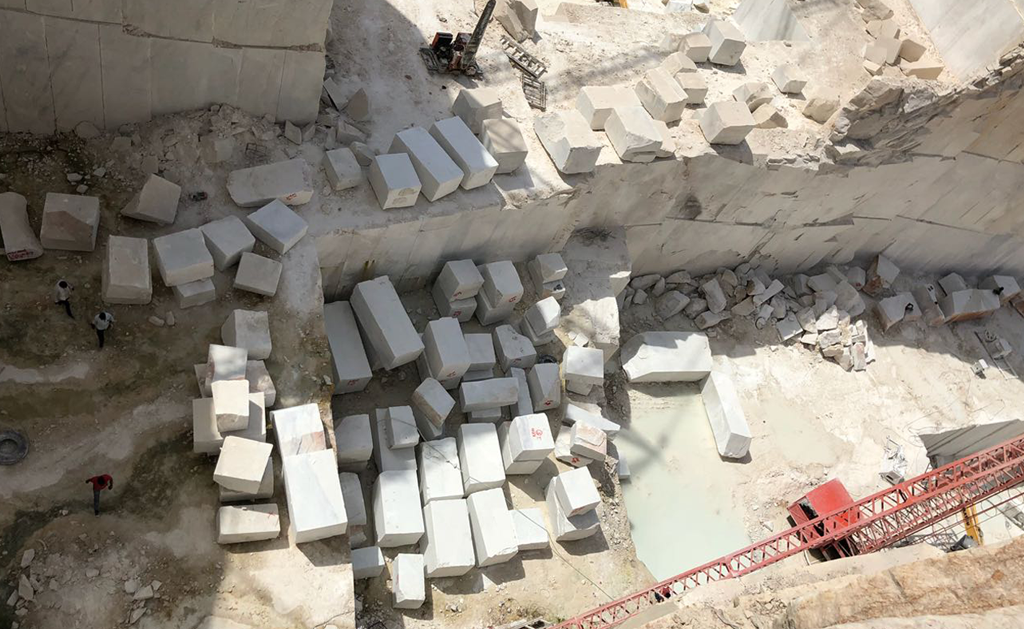Rajasthan, the gorgeous country of forts, palaces, and lively civilizations, is well-known not just for its historical wealth but also for its growing marble industry. The state, known around the world for its high-quality marble, has played an important part in developing India’s status as a prominent player in the worldwide stone market. In Rajasthan there is a town name Kishangarh, it is Asia’s one of the biggest Marble hub. Kishangarh is also known as marble mandi and now alot of tourist come to visit Dumping Yard, which is known as mini Kashmir formed out marble powder.
Let us explore the intriguing world of Rajasthan’s marble business, learning about its history, significance, and impact on both the local economy and the global market.
- Rajasthan’s Geological Charm
Marble Reserves:
Rajasthan has an abundance of marble reserves, making it India’s largest marble-producing state. These rich reserves are held gently by the Aravalli Range, one of the world’s oldest mountain ranges, contributing to the state’s marble wealth. - Marble in Rajasthani Architecture: A Historical Legacy
Architectural Wonders:
Marble has been used in Rajasthani construction for millennia. The state’s marble has left an unmistakable impact on India’s cultural and historical environment, from the distinctive white marble monuments of the Dilwara Temples in Mount Abu to the complex carvings in the Jaswant Thada and the sublime beauty of the Taj Mahal in Agra.
- Rajasthan’s Marble Industry: Economic Growth Catalyst
Possibilities for Employment:
The marble business in Rajasthan is a major source of employment, employing thousands of trained and unskilled workers. Quarrying, processing, and manufacturing marble goods help to create jobs in both rural and urban locations.
Economic Contribution: The industry also plays an important part in the state’s economic development. Exports of marble, in particular, contribute significantly to Rajasthan’s earnings, promoting economic growth and development. - Marble Varieties: Rajasthan’s Vast Selection Makrana Marble:
Makrana, a town in Rajasthan’s Nagaur region, is noted for its high-quality white marble. Makrana marble has been utilized in a number of historical structures, including the Taj Mahal.
Rajnagar Marble: Rajnagar, in the Rajsamand district, is another important marble-producing region, recognized for its broad range of marble variations, including the sought-after green marble. - Technological Progress: Changing the Industry
Modern Quarrying Methods:
While conventional quarrying methods continue to be used, modern quarrying techniques have been implemented to improve efficiency and reduce environmental effect. The use of modern machinery has altered the landscape of the sector.
Processing plants: Rajasthan has a plethora of marble processing plants that are outfitted with cutting-edge technology. These facilities are dedicated to improving the quality and finish of marble products in order to fulfill the market’s changing needs. - Sustainability and Challenges: A Balancing Act
Concerns about the environment:
Like every extractive sector, the marble industry has environmental challenges. Sustainable quarrying practices and initiatives to reduce the industry’s environmental footprint are critical for the industry’s long-term success.
Market Dynamics: The worldwide marble market is dynamic, with swings in supply and demand. The marble business in Rajasthan must adapt to shifting market trends in order to remain competitive. - Rajasthan’s Marble’s Global Footprint in International Markets Export Hub:
Rajasthan’s marble industry has established itself as a global market leader. The state’s marble goods, noted for their quality and craftsmanship, are sold to a variety of countries, helping India maintain its position as a major marble exporter.
Collaborations with international architects and designers have raised the prominence of Rajasthan marble, demonstrating its versatility and attractiveness in a variety of worldwide projects.
Rajasthan’s marble industry is more than just an important economic sector; it is also a keeper of the state’s artistic past and a global advocate for Indian marble artistry. Rajasthan’s marble remains a symbol of eternal beauty and enduring economic vigour as the industry evolves, balancing heritage with modernity and sustainability with economic progress. It’s a voyage that combines the natural beauties of the Aravalli Range with the artistic expertise of Rajasthan’s artisans to create a story inscribed in stone, a story that resonates around the world.

